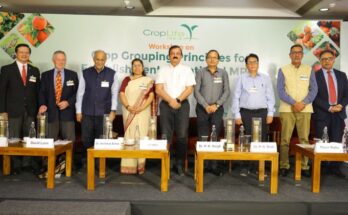Despite the promising performance in terms of exports, the local consumption of organic produce is still at a nascent stage with a market share of less than 1 percent and per capita consumption at only EURO, said the ASSOCHAM-EY joint report, released in New Delhi today.
ASSOCHAM-EY joint report titled, ‘The Indian Organic Market: A new paradigm in Agriculture’, reveals that the agricultural policy of India has gradually shifted from espousing a production-centric approach to a more holistic approach, in addition to focusing on increased productivity, factors in climatic considerations, nutritional concerns, environmental impact and standard of living of the stakeholders.
According to the paper, organic farming is practiced with varying levels of success in 178 countries. However, the North American and European Union regions (as single markets) generate the bulk of the global sales. The global sales increased to US$ 89.7 billion in 2016 from US$ 7.9 billion in 2000. Country wise, the top consumers of organic products are the US (US$ 43.1 billion), followed by Germany (US$ 10.5 billion) and France (US$ 7.5 billion).
The increase in demand has led to a considerable increase in the area subject to organic management techniques globally, surging from 11 million hectare in 1999 to 57.8 million hectare in 2016. The wild harvest and other non-agriculture organic collection area also increased to 39.9 million hectare in 2016 from 4.1 million hectare in 1999, the paper says.
The three countries with the largest area under organic cultivation are Australia (27.1 million hectare), followed by Argentina (3.0 million hectare) and China (2.3 million hectare). The three countries with the largest wild harvest area for organic products are Finland (11.6 million hectare), followed by Zambia (6.7 million hectare) and India (4.2 million hectare), adds the paper.
According to the study, in addition to ranking third in wild harvest area, India also houses the highest number of organic producers globally with 835,000 organic farmers. It also ranks 9th in terms of area under organic cultivation with 1.49 million hectare. Therefore, it occupies a robust position in producing organic products, having already exported 1.35 million MT of certified organic food products worth INR 1,937 crore in 2015-16.
The exports are largely concentrated around the US, Europe (EU), Canada, Japan and the West Asian markets. India is the largest exporter of organic cotton worldwide. In the food market segment, oilseeds comprised half of India’s overall organic food export, followed by processed food products at 25 percent, the paper says.
The report further says, the current Indian organic market is estimated at INR 4,000 crore and is likely to increase to INR 10,000–12,000 crore by 2020 with a similar incremental trend in exports. Indian organic market has been progressing steadily with compound annual growth report of 25 percent as compared to 16 percent global growth rates.
Notwithstanding the enabling environment created by a culmination of the aforementioned factors, there exist several challenges for all the stakeholders involved at every stage of the value chain. Producers of organic products are continually struggling to optimise the scale of their operations while maintaining profitability. This is primarily because of the gaps in the regulatory framework for organic products in India.
The processors of organic food products on the other hand, face significant resistance in the form of lack of adequate post-harvest facilities for organic products. Several measures need to be taken in order to avoid contamination and cross-contamination of the produce and the infrastructural capabilities of the country often prove to be inadequate. The marketing of organic produce comes with its own set of challenges related to global competitiveness and differences in global and national quality standards.
Although there has been a marked improvement in the level of awareness regarding organic products, many consumers are unaware of its benefits thereby providing no incentives for increased supply and resulting in organic products being priced higher than their conventional variants.
A greater emphasis should be placed on the capacity building of stakeholders, easing access to finance, monitoring and evaluation (M&E) of all assets and processes as well as research and development to help keep abreast with global progress in the sector. Additionally, there has emerged an urgent need for infrastructural development and business climate reforms, reinvention of branding and marketing strategies and entrepreneurship development, the paper recommends.
The rapid growth of the organic market can be attributed to various factors are increasing emphasis on good health, proliferation of consumption-related ailments, an increased awareness regarding the health benefits of organic products among consumers, enhanced income levels and standard of living, together with government initiatives aimed at promoting organic products are key drivers of this exponential market expansion, highlighted the paper.
Organic Farming: India’s organic consumption share




